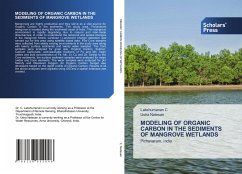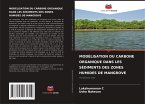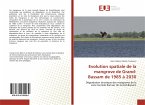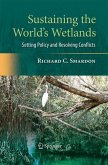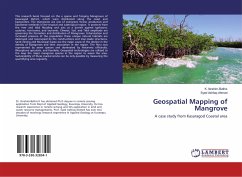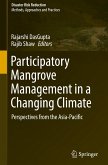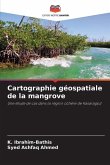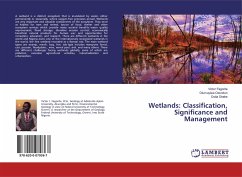Mangroves are highly productive and they serve as a vital source for Organic Carbon in the sediments. The study area, Pichavaram mangrove is located along the southeast coast of India. This mangrove environment is rapidly degrading due to natural and man-made disturbances. In order to understand the temporal and spatial changes in the mangrove forest, Landuse / Landcover change detection was carried out for this area using satellite digital data. Five Core samples were collected from widely varying environments in the study area along with twenty surface sediments and twenty water samples. The Core samples were analyzed for grain size, Organic Carbon, Sulphur, Calcium Carbonate, acid-leachable fractions of Fe and Mn, major oxides and bulk concentration of Fe, Mn, Cr, Cu and Zn. Similar to the Core sediments, the surface sediment samples were analyzed for major oxides and trace elements. The water samples were analyzed for pH, Salinity and Dissolved Oxygen. An Organic Carbon budget was developed based on the depth profile of Organic Carbon. Results of all the above analyses were digitized using GIS and a spatial database was created.
Bitte wählen Sie Ihr Anliegen aus.
Rechnungen
Retourenschein anfordern
Bestellstatus
Storno

